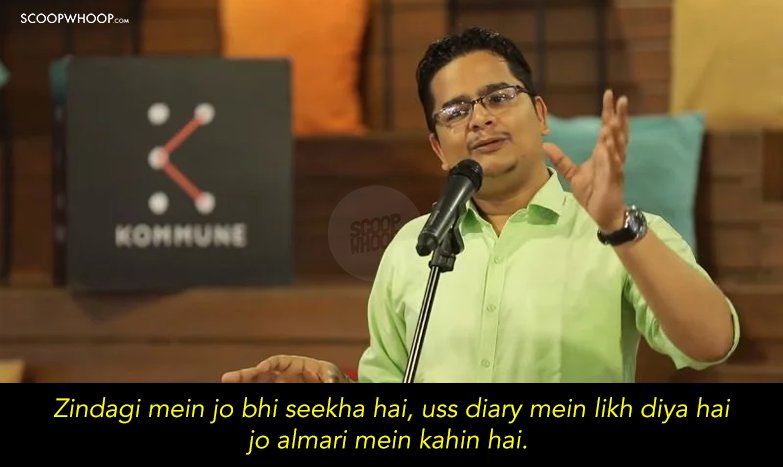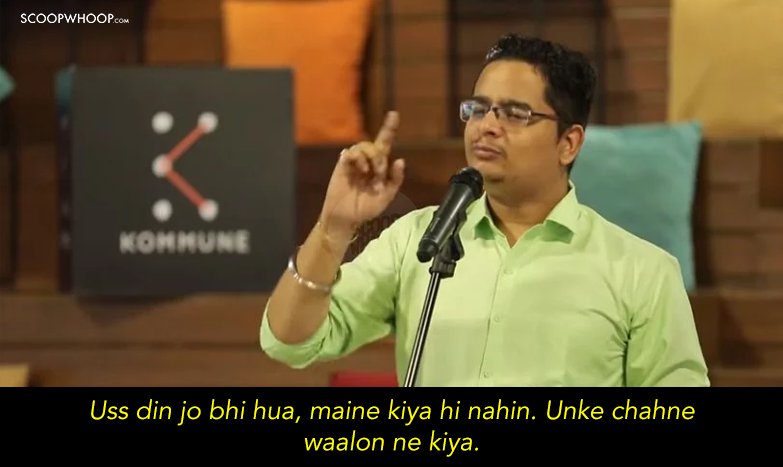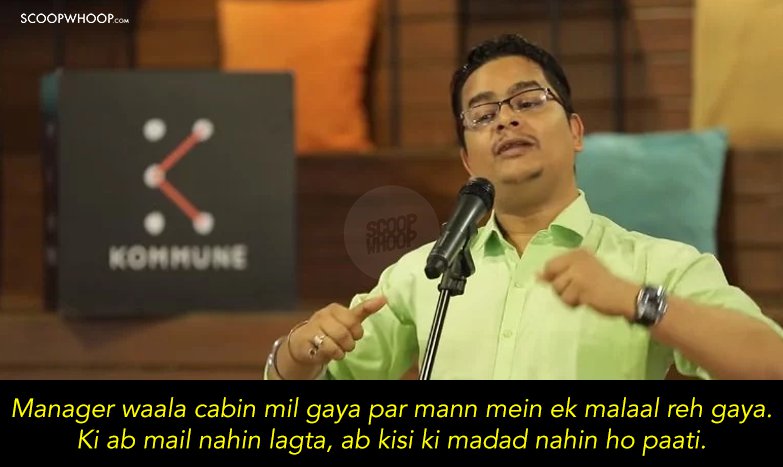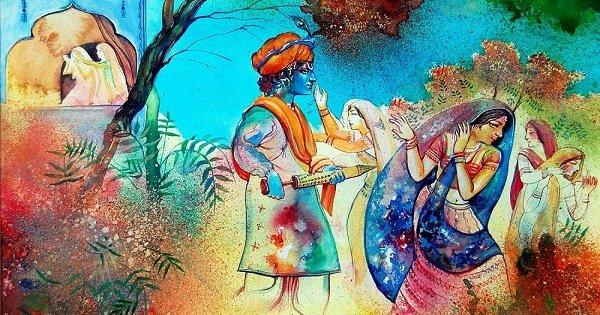Daag achche hain.
Made popular by a detergent brand, this phrase never made sense to me. But it does, now, after listening to Rakesh Tiwari’s poem about his father.
He starts the poem by going down the memory lane and saying that when he was young, there were fights at his home about his father’s dirty shirts and mother’s incapability to understand how it happened.

For the longest time, he thought this is his father’s trick to initiate a conversation with his mother in an old-fashioned home they were living in.

But, as he grew up he realised the reason behind his father’s stained shirts was much bigger and much deeper.
When his father was on his deathbed, Rakesh asked him if there are some life lessons he wants to pass on and he replied that there is a diary where he has written everything.

Eventually he passed away and to Rakesh’s surprise entire neighbourhood came together for the last rites.
Rakesh says that even though he was the ‘only son’, he didn’t have to perform any of the ‘big’ duties.

He was confused as to why people were so affectionate towards his father when he got his hands on the diary which had all the ‘secrets’ and then it all made sense. Even the stains on the shirts.
His father was a son of a farmer, who moved to the city for a big job. He was happy but he missed helping people directly.

So, every now and then he would go out and help those who needed it. This gave his heart a lot of satisfaction and his shirt, some stains.
When Rakesh was going to collect his father’s ashes, a man came and helped him so he offered him money. Denying the offer, he said that he is looking for a job and if Rakesh could help him with that.
Smiling, he went down the stairs and put some mud on his shirt. His father’s legacy was going to live on; Rakesh would make sure it does.
You can listen to the poem here.
All screenshots are taken from the video.

















